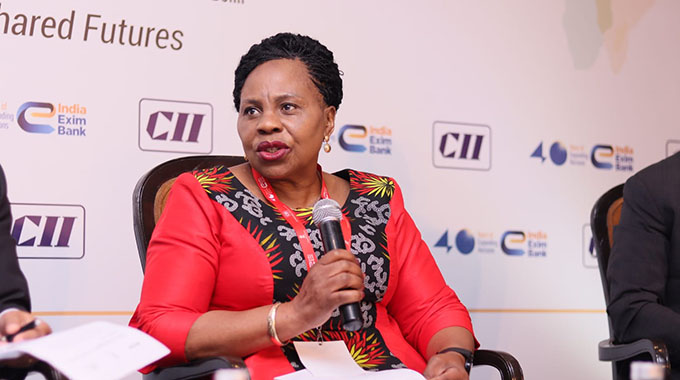Human trafficking: 171 foreigners intercepted

Freeman Razemba-Crime Reporter
A human trafficking syndicate involving a gang of criminals who are using the country as a transit point to transport their victims to neighbouring countries has been unearthed, after police this week arrested more than 171 foreigners in separate incidents.
Most of the foreigners who had no travel documents were arrested while being transported by local bus operators in Gweru and Murewa.
In Murehwa, police intercepted 86 foreigners on Monday while in Gweru, another 82 more were also arrested. Three others were also arrested in Murewa while they were looking for transport to Nyamapanda Border Post.
Investigations have so far revealed that these foreigners were being transported to South Africa. They are all still assisting police with investigations awaiting deportation once all the procedures have been followed.
National police spokesperson Assistant Commissioner Paul Nyathi said they have since beefed up security countrywide.
“Motorists are warned against using vehicles in human trafficking episodes in connivance with foreign nationals. On August 15, 2022, police in Murewa arrested 86 foreign nationals comprising 76 males and 10 females for entering the country without travelling documents.
“The suspects were intercepted at a house in medium density suburbs, Murehwa after being assisted by a local transporter,” he said.
Asst Comm Nyathi said in another case, on Wednesday, police in Gweru arrested Wosith Travellers Coach bus crew for human trafficking after being found transporting 82 foreign nationals without travelling documents.
“Meanwhile, on August 16, 2022, detectives in Murewa also arrested three foreign nationals in Murewa who were hitch hiking from South Africa en-route to Nyamapanda without following laid custom and excise procedures,” he said.
Recently, Information, Publicity and Broadcasting Services Minister Monica Mutsvangwa said security had been tightened at all border points as Government seeks to end unauthorised crossings of organised criminal gangs likely to be ferrying child victims of human trafficking.
Investigations into several child trafficking cases were also underway to ensure those caught on the wrong side of the law are adequately punished.
Speaking during the ZBC corporate social responsibility initiative dubbed Safe Kids Campaign, Minister Mutsvangwa said children were protected by the Constitution.
Through the Safe Kids Campaign, ZBC seeks to raise awareness and assist in ending child trafficking in Zimbabwe.
Minister Mutsvangwa said the Government, its departments and institutions, were fully involved in the investigation of several trafficking cases and were doing all it could to ensure “it ends this diabolical practice through the enactment of policies and pieces of legislation such as the Trafficking in Persons Act”.
“As Government we also have clear and cogent plans to combat human trafficking. The trafficking in persons national plan of action for 2021–2025 was recently presented in Cabinet and an inter-ministerial committee, chaired by the Minister of Home Affairs will oversee the formulation and implementation of this national plan of action whose membership includes my ministry,” she said. The national plan of action is a framework established to ensure a well-coordinated approach in responding to trafficking in persons and has four pillars: prevention, protection, prosecution and partnerships.
“These pillars render support, protection and assistance to the victims. This is in line with international standards and laws such as the Palermo Protocol which is a United Nations Convention against transnational organised crime. This seeks to prevent, suppress and punish trafficking in persons especially women and children.
“Furthermore, Zimbabwe’s trafficking in persons national plan of action is in line with the Constitution of Zimbabwe, the Trafficking in Persons Act and United Nations Conventions. As Government, we have also tightened security at all border points to end unauthorised crossings from organised criminal gangs likely to be ferrying child victims of human trafficking.
“My ministry is ensuring that community radio stations are established in most border areas so that people stay well informed and abreast with information,” said Minister Mutsvangwa.
The International Criminal Police Organisations (Interpol) also recently started helping law enforcement agents, including the Zimbabwe Republic Police (ZRP) to dismantle human trafficking criminal networks by promoting international police cooperation and the use of the organisation’s policing capabilities.
By engaging in these operations, member countries work in close partnership on ongoing criminal investigations, strengthening their controls to identify victims of trafficking in borders and hotspots.
Interpol said human trafficking constitutes a modern form of slavery denying people their dignity and basic rights. It is a crime that knows no borders, affecting people of all ages and regions throughout the world.
In the eyes of organised-crime networks, victims of this crime are a commodity for economic profit, to be exploited and sold. Such networks make large profits through human trafficking as they subject their victims to mental and physical abuse.
Trafficking can take on many forms. Its constant feature, however, is the exploitation of vulnerabilities. Examples include, among others, cases of labour exploitation in areas like construction, fishing and agriculture; forced criminality, sexual exploitation and organ removal.
During this year’s World Day against Trafficking in Persons, held annually on July 30, Interpol shed light on its work combating this crime. This year’s focus was on the role of technology as a tool that can both facilitate and impede human trafficking.










Comments